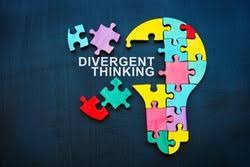Cracking the Code: Dictionary Skills as the Key to Enhanced Literacy
This blog honors the legacy of Dr. Robert T. Nash, a trailblazer in language and literacy, renowned for his expertise in dictionary skills and lexicography.
Within the contexts of education, literacy is the foundation upon which proficient readers are nurtured. Evidence-Based Reading Practices (EBRP) and the Five Pillars of Reading guide educators across academic levels. Yet, often overlooked in this pursuit is the potent tool of the dictionary.
At the core of literacy development lies the often-underestimated dictionary. It's not merely a book of definitions; it's a decoder of language complexities, aiding pronunciation accuracy, contextual meaning extraction, and even empowering independent learning.
My personal journey from a struggling reader to a scholar with a PhD in Language and Literacy has intersected with the transformative impact of dictionary skills. I've observed a gap in recognizing the dictionary's potential within education, mirroring the challenges students face, especially those with specific learning disabilities.
Advocating for the integration of dictionary skills within EBRP has been my mission. Despite initial hesitancy from educators due to its unconventional nature in reading pedagogy, embracing dictionaries has the potential to enhance language comprehension and literacy skills.
This integration, aligned with the Reading Rope model, enhances phonological awareness, fluency, vocabulary, and comprehension. Through scaffolded instruction, dictionary skills bridge gaps in phonics, vocabulary expansion, and comprehension within diverse student groups.
By connecting early phonics with morphological understanding, educators can foster foundational linguistic competencies in diverse learners. This integration not only promotes equity but also empowers students from varied linguistic backgrounds.
Integrated Framework
Note: abbreviations for words: Definition: Def; Integration: Integ.; Application: App.
Matrix: Integrated Framework: Reading Skills & Dictionary Utilization | ||
Aspect | Description | Examples |
Def. | Describes reading's nature covering word recognition and language understanding. | Reading a passage, understanding meaning, decoding words. Using a dictionary for word meanings, pronunciation. |
Strands | · Phonological awareness - recognizing sounds in words and understanding phonemes. · Decoding - applying letter-sound knowledge. · Sight recognition - quickly recognizing common words. | Knowing alphabetical order, guide words, pronunciation using phonetic symbols. |
Upper Strands | · Background knowledge- using experiences to understand text. · Vocabulary – finding word meanings and usage. · Language structures – enhancing comprehension | Extracting information from a dictionary, improving language understanding, understanding different text types. |
Integ. | Strands improve reading accuracy, fluency, and automaticity through practice. | Using dictionary features for word comprehension and language tasks |
Focus | Emphasizes interconnected skills for effective reading | Specifically using the dictionary for word exploration and comprehension. |
Goal | Develops decoding, sight recognition, and reading comprehension. | Equips individuals with skills for independent word comprehension, using a dictionary for learning. |
App. | Framework guides reading instruction, incorporating various components. | Applied when encountering unfamiliar words or seeking additional information. Teacher structures lessons around strategies. |
Copyright 2024 Shawn Anthony Robinson PhD
Embedded within this transformative approach is Shawn Anthony Robinson's PhD matrix. This matrix connects 'The Reading Rope' and 'Dictionary Skills,' offering educators a structured guide for comprehensive reading instruction.
This tool empowers learners by fostering proficient reading and effective dictionary use, laying the foundation for a future where language mastery is celebrated globally.
In conclusion, integrating dictionary skills within EBRP represents a transformative approach to literacy. It fosters inclusivity, critical analysis, and celebrates linguistic diversity. These skills empower learners, shaping a future where language mastery is celebrated and understood globally.
Join the movement. Integrate dictionary skills into literacy education today. Let's empower learners and celebrate linguistic diversity together.
Peace,
Shawn Anthony Robinson PhD
Student of Dr. Nash.




Comments
Post a Comment